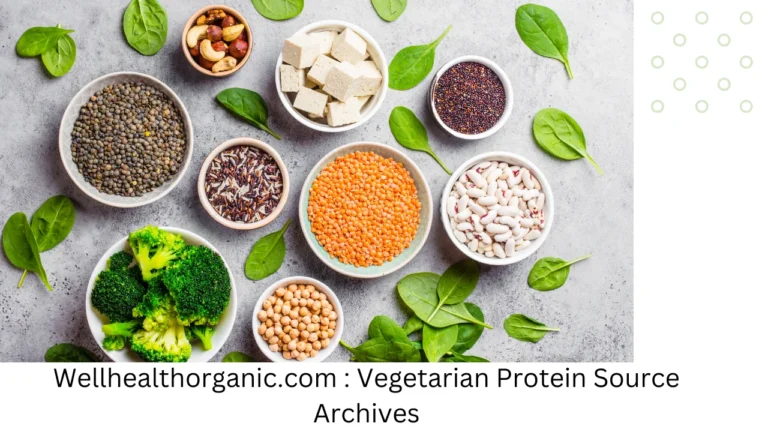Wellhealthorganic.com Know Why Not to Reuse Plastic Water Bottles Know Its Reason in Hindi

Plastic water bottles have become an essential part of our daily lives, offering convenience and portability. However, their reuse poses several health and environmental risks that are often overlooked. In this article, we explore why it is dangerous to reuse plastic water bottles and discuss healthier alternatives for daily hydration. If you’re searching for detailed information on this topic, wellhealthorganic.com know why not to reuse plastic water bottles know its reason in Hindi can guide you comprehensively.
प्लास्टिक की पानी की बोतलों का बार-बार उपयोग क्यों है खतरनाक?
प्लास्टिक की पानी की बोतलों को बार-बार उपयोग करना स्वास्थ्य के लिए हानिकारक हो सकता है। ये बोतलें मुख्य रूप से पॉलीइथाइलीन टेरेफ्थेलेट (PET) से बनी होती हैं, जो केवल एक बार उपयोग के लिए डिजाइन की जाती हैं। बार-बार उपयोग करने पर ये प्लास्टिक टूटने लगती है और पानी में माइक्रोप्लास्टिक और हानिकारक रसायन छोड़ सकती है। इन रसायनों में बीपीए (Bisphenol A) और अन्य रसायन शामिल हैं, जो हार्मोनल असंतुलन का कारण बन सकते हैं और शरीर पर दीर्घकालिक प्रभाव डाल सकते हैं।
इसके अलावा, इन बोतलों में बैक्टीरिया और फंगस का पनपना भी एक गंभीर समस्या है। बार-बार उपयोग से बोतलों की सतह पर छोटे-छोटे खरोंच आ जाते हैं, जहां बैक्टीरिया और फंगस पनपते हैं। अगर इन बोतलों को सही तरीके से साफ नहीं किया जाता है, तो यह पेट की बीमारियों, संक्रमण और अन्य स्वास्थ्य समस्याओं का कारण बन सकती हैं। Wellhealthorganic.com know why not to reuse plastic water bottles know its reason in Hindi पर आपको इस विषय में विस्तृत जानकारी मिल सकती है।
Hidden Dangers of Reusing Plastic Water Bottles
Plastic bottles are primarily designed for single use. While they may seem sturdy enough to use multiple times, the reality is that repeated use can make these bottles harmful. The primary concern is the material used in most plastic bottles, which often contains polyethylene terephthalate (PET). PET is safe for single use, but repeated exposure to heat, moisture, and pressure can cause it to break down.
1. Release of Microplastics and Chemicals
When plastic water bottles are reused, their surface starts to degrade, especially when subjected to heat or physical wear. This degradation leads to the release of microplastics, tiny particles that can mix with water. Studies suggest that consuming water contaminated with microplastics may have adverse health effects, although the long-term consequences are still being researched.
Additionally, harmful chemicals like Bisphenol A (BPA) and phthalates can leach into the water when bottles are reused. These chemicals can disrupt the hormonal balance in the body, leading to various health problems such as reproductive issues and metabolic disorders.
2. Breeding Ground for Bacteria and Fungi
Plastic water bottles, especially those with narrow openings, are difficult to clean properly. This makes them an ideal breeding ground for bacteria and fungi. When bottles are reused without proper sanitization, bacteria from your mouth or the environment can thrive, potentially leading to infections or illnesses. Warm and moist environments accelerate bacterial growth, making reused bottles even more dangerous in hot climates.
According to wellhealthorganic.com know why not to reuse plastic water bottles know its reason in Hindi, regular cleaning is not enough to completely eliminate these risks, as the plastic material itself can harbor microscopic organisms over time.
Health Impacts of Reusing Plastic Bottles
The dangers of reusing plastic water bottles are not limited to chemical exposure and microbial contamination. Repeated use can lead to a range of health concerns, including:
Also Read: HLF Fitness Guide to Health and Wellness
- Digestive Problems: Microplastics consumed with water can accumulate in the body, potentially causing digestive discomfort and long-term issues.
- Hormonal Imbalance: Chemicals like BPA mimic estrogen, disrupting the endocrine system and affecting natural hormone regulation.
- Increased Risk of Infections: Bacteria and fungi growing inside reused bottles can cause infections, especially in individuals with weakened immune systems.
Comparison of Risks from Reused vs. New Plastic Bottles
| Factor | New Plastic Bottle | Reused Plastic Bottle |
|---|---|---|
| Chemical Leaching | Minimal | High |
| Microbial Contamination | Low | High |
| Durability | High | Decreases Over Time |
| Health Risks | Low | Significant |
Environmental Concerns
Beyond personal health risks, reusing plastic water bottles has a broader environmental impact. While reusing may seem eco-friendly, these bottles eventually degrade and contribute to plastic pollution. Improper disposal of damaged bottles can exacerbate the problem, as plastics take hundreds of years to decompose.
Also Read: Best Wellhealthorganic Home Remedies Tag and Recipe
Wellhealthorganic.com know why not to reuse plastic water bottles know its reason in Hindi emphasizes that relying on plastic bottles creates a cycle of pollution, as many reused bottles eventually end up in landfills or oceans.
Sustainable Alternatives to Plastic Bottles
Switching to safer and more sustainable options can eliminate these risks. Here are some effective alternatives:
- Stainless Steel Bottles: Durable, non-toxic, and easy to clean, stainless steel bottles are an excellent choice for daily use.
- Glass Bottles: While heavier and more fragile, glass bottles do not leach chemicals and are environmentally friendly.
- Reusable BPA-Free Bottles: These bottles are made from safer plastics designed for repeated use without health hazards.
Also Read: Wellhealthorganic.com : Key Signs of Gastroenteritis Guide
Science Behind Chemical Leaching
Chemical leaching is one of the primary concerns when reusing plastic bottles. Substances like BPA (in some older plastics) and phthalates are known for their disruptive effects on human health. Here’s how they affect the body:
- Endocrine Disruption: BPA mimics estrogen and can interfere with the hormonal balance, affecting fertility and metabolism.
- Carcinogenic Risk: Long-term exposure to certain chemicals from degraded plastic has been linked to cancers, particularly breast and prostate cancer.
- Neurodevelopmental Issues: Studies have shown that exposure to plastics can impact brain development, especially in children.
Also Read: Wellhealthorganic.com -Ayush Gateway to Holistic Health
How to Stay Safe If You Must Reuse Plastic Bottles
If circumstances require you to reuse a plastic water bottle, it’s crucial to follow strict hygiene practices. Wash the bottle thoroughly with warm, soapy water after each use and dry it completely to prevent bacterial growth. Avoid exposing the bottle to direct sunlight or heat, as this can accelerate chemical leaching and plastic degradation.
Wellhealthorganic.com know why not to reuse plastic water bottles know its reason in Hindi also advises checking the recycling code at the bottom of the bottle. If the code is 1 (PET or PETE), it is best to avoid reusing the bottle, as these plastics are designed for single use.
Conclusion
The convenience of reusing plastic water bottles often blinds us to the risks they pose to our health and the environment. Microplastics, chemical leaching, and microbial contamination are just a few of the dangers associated with this habit. To ensure your well-being and contribute to a sustainable future, switch to reusable bottles made from safer materials like stainless steel or glass.
For a deeper understanding of this topic, visit wellhealthorganic.com know why not to reuse plastic water bottles know its reason in Hindi. This resource provides valuable insights into why avoiding the reuse of plastic water bottles is a critical step toward better health and environmental sustainability.
Also Read: Financial Fitness Achieving Both Health and Wealth Site%azanab.com






